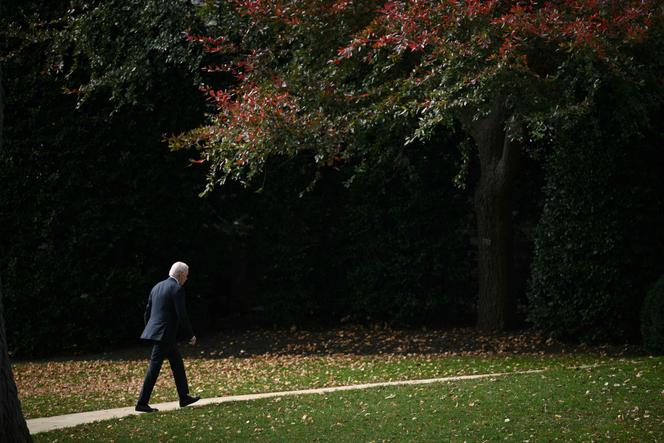


Joe Biden didn't let 24 hours go by before reaching Donald Trump to invite him to the White House to prepare for the transition on January 20, 2025. Like Barack Obama eight years earlier, the Democrat will have to hand over the presidency to a man who showered him with insults. The task had been even more painful for Obama. The Republican, who insisted on using Obama's middle name, Hussein, had for years fed the conspiracy theory that he was born outside the United States, making his presence in the Oval Office illegitimate.
Arriving at the White House after the January 6, 2021 assault by Trump loyalists on Congress to prevent the certification of his victory, Biden set himself two goals: to turn the page on the era of Trump and to prove that a democratic regime could be as effective as an authoritarian one. Trump's victory showed that he failed to achieve them.
"I know speaking of unity can sound to some like a foolish fantasy," Biden said, in his inaugural address on January 20, 2021, finally reaching the office he had always wanted to hold. "I know the forces that divide us are deep and they are real. But I also know that they are not new. Our history has been a constant struggle between the American ideal that we are all created equal and the harsh, ugly reality that racism, nativism, fear and demonization have long torn us apart," he had assured, pleading for the two sides of a deeply divided America to strive to look at each other "not as adversaries, but as neighbors."
This hope for reconciliation was Biden's first failure. The former senator from Delaware, shaped for more than three decades by a practice of politics, on the judiciary and then foreign affairs committees, that was based on compromise, belatedly discovered a Congress devoured by its divisions when it wasn't, as far as House Republicans were concerned, subject to the tyranny of a Trumpist minority group in the Freedom Caucus.
Less than two years later, with Trump's renewed stranglehold on his party, Biden was already mourning any hope of reconciliation. The denunciation of "extreme MAGA Republicans" who "don't just threaten our personal rights and our economic security, they embrace political violence" became a regular theme in the mid-term election campaign, in the fall of 2022.
Biden also failed to embrace the imperative that democratic governments around the world must resist the retreat of their model by demonstrating their ability to meet the needs of their fellow citizens. "This is the major challenge of our time," he had insisted in December 2021, before he became entangled with opportunistic calculations pushing him, for example, to renew ties a few months later with a "pariah," Saudi Crown Prince Mohammed bin Salman, in an attempt to obtain a drop in world oil prices, thanks to an increase in his country's production.
You have 40.47% of this article left to read. The rest is for subscribers only.
